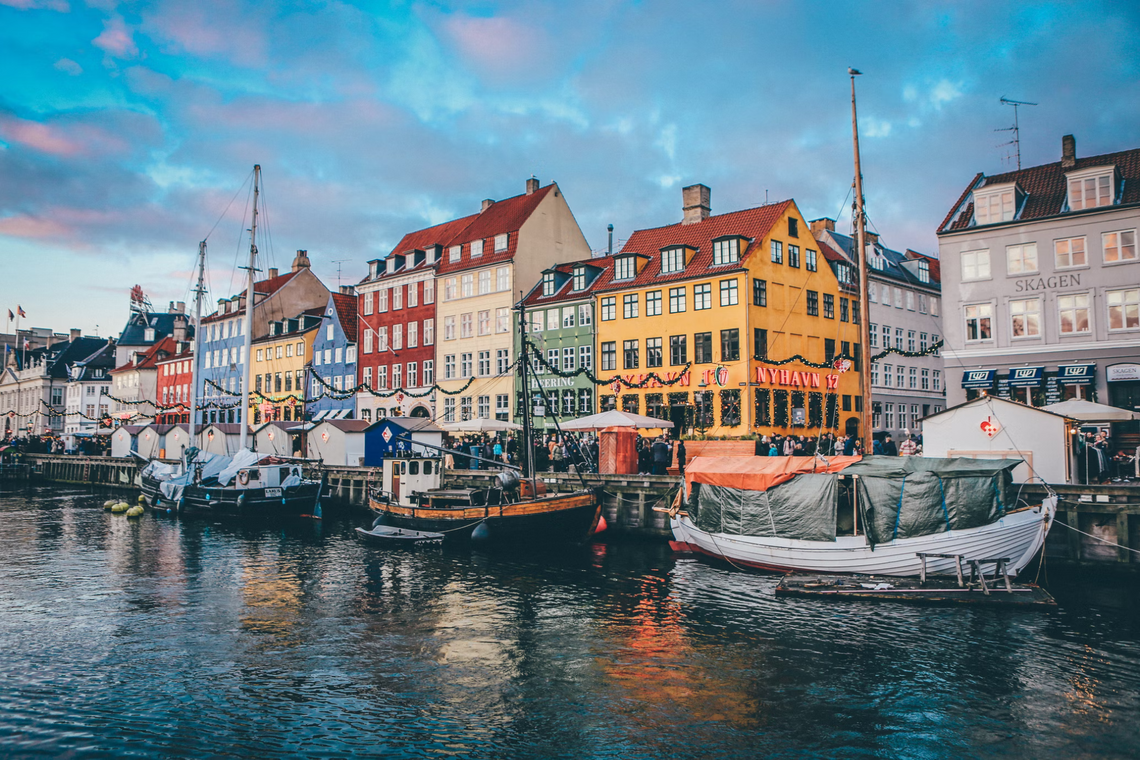
Apply to a foreign university with confidence
- Properly fulfilled documents
- Perfect motivation letter
- Support from a personal mentor
- Offers from several universities
How to move to Europe. We analyze the immigration process: methods, stages, visa, residence permit, permanent residence, citizenship
Free consultation
Immigration to Europe is not an easy process. On average, 14% of the European population is made up of immigrants[1], which is why countries such as Germany, Monaco, Austria, Finland, and Switzerland have strict immigration policies[2].
To obtain citizenship in Europe, you need to live in the country for at least 5 years and fulfill many other requirements (pass tests on the political structure, laws, language, and culture of the country; have no criminal record; prove a stable source of income). However, if you have a good reason for moving and know the necessary features of immigration, relocation can happen without serious difficulties.
Choose a method of immigration
First, you need to choose which method of immigration suits you: student, labor, marriage, humanitarian, or through investment.
Look for a suitable country
The choice of a country depends on the method of immigration: some countries are better for receiving an education, others to look for a job, and some provide special conditions for moving family members or a partner.
Apply for a visa
After you choose an immigration method, you need to collect a package of documents for obtaining a visa. The terms of consideration vary from country to country, so it is worth submitting an application 2-3 months before the intended departure.
Move and receive a residence permit
Before the visa expires, apply for a residence permit. It will allow you to stay in the country for up to 4 years.
Live in the country and get permanent residence
A permanent residence permit can be obtained after 3-5 years of residence in the country.
The last stage of immigration involves paperwork and tests on the laws, language, culture, and customs of the country.
| Type of immigration | Condition |
|---|---|
| Student | Invitation from an educational organization |
| Professional | High qualifications and job offers |
| Business and investment | Investment and the opening / acquisition of a business |
| Family reunification and marriage | Partner / close relative of a citizen or resident of the country |
| Humanitarian | Refugee or asylum seeker |

To immigrate to Europe, you can study on a student visa, get a job, and stay after graduation. Preparation for this immigration method includes several stages. First of all, you need to choose where to study.
Main criteria:
Education at public universities in Germany and Norway is free[3] — you only need to pay semester fees (282-339 USD — Germany[4], 34-68 USD — Norway[5]). Also, you do not need to pay tuition fees in Slovakia, the Czech Republic, and Finland if you choose a program in their local languages. We talk more about such opportunities in our article on affordable universities in Europe. However, do not forget that in addition to studying, students also need to spend money on accommodation and food, so not all countries with affordable education are as cheap as they may seem. For example, monthly living expenses in Norway average at 1,770 USD, in France — 1,536 USD, and in Finland — 1,592 USD.
Each country has its own requirements for admission, but the main ones include:
Upon arrival, the student can apply for a temporary residence permit and stay in the country for the entire period of study.
After graduation, you need to apply for a special residence permit in order to find a job or start your own business. This will allow you to live in the country from 9 months to 1.5 years. It is issued by most European countries. There are, however, exceptions — such as Greece. There is no such option: you can only apply for a residence permit with a work permit, and this must be done before the student residence permit expires.
Some countries offer special programs for students, such as the Orientation Visa in the Netherlands. Therefore, it is important to check for employment opportunities on the websites of the Ministry of Education of your chosen country.

Read more about student immigration
The main way to immigrate to Europe for work purposes is through the Blue Card. It is obtained by highly qualified specialists: those who have a diploma of higher education or 5 years of work experience in a relevant field. The blue card is issued by most EU countries, except for Denmark and Ireland.
In addition to the Blue Card, some members of the European Union provide employment programs: in Austria — Rot-Weiß-Rot Karte; in the Czech Republic — The Employee Card. Such opportunities should be clarified on the website of the embassy of your chosen country.
For countries that are not a part of the European Union, you also need to prove your qualifications and get an invitation from the organization where you intend to work. Once all conditions are met, you must apply for a work visa, enter the country, and apply for a residence permit.
The main criteria for choosing a country:
The best option is high wages, a low cost of living, and low unemployment.
| Country | Avg. salary, year[15] | Unemployment rate[16] | Avg. cost of living, year |
|---|---|---|---|
| Switzerland | 61 USD | 4.9% | 25 USD |
| Iceland | 82,168 USD | 4.2% | 31,185 USD |
| Luxembourg | 74,114 USD | 4.7% | 33,669 USD |
| Norway | 55,753 USD | 3.3% | 23,493 USD |
| Denmark | 67,718 USD | 4.7% | 2,103 USD |
| Netherlands | 56,695 USD | 3.6% | 26,320 USD |
| Ireland | 55,704 USD | 5.2% | 27,852 USD |
| Belgium | 51,791 USD | 5.6% | 20,991 USD |
| Austria | 50,611 USD | 4.9% | 21,086 USD |
| United Kingdom | 48,973 USD | 4.1% | 22,610 USD |
| Finland | 48,328 USD | 7.1% | 20,964 USD |
| Germany | 48,130 USD | 3.1% | 20,584 USD |
| Sweden | 45,505 USD | 8% | 192684 |


Immigration through investment in the country's economy is also called a Golden Visa. This method is suitable for wealthy foreigners who are able to invest a large amount of money (average 282,497 USD) in real estate, government bonds, or a company. The Golden Visa provides a residence permit for the period through which the investment is valid. You will also be able to travel freely within the Schengen countries. If you apply, your family (spouse and children) also receives a residence permit.
However, there are few countries in Europe that support this program. The most popular are Spain, Montenegro, Portugal, Greece, and Turkey. Some (Bulgaria, Cyprus) plan to stop issuing Golden Visas[17].
Read more about investment immigration
This is the most common way to immigrate to Europe: about 39% of all immigrants indicate this reason for obtaining a residence permit — family reunification[18]. If a close family member or partner whom you intend to marry is a citizen or resident of one of the European countries, then you can move and live with them. The conditions for issuing a visa vary depending on the country and should be clarified on the websites of embassies and visa centers. The main requirement is to prove family ties. This may be a birth certificate, marriage, and even joint photographs.

This method of immigration is a form of protection for a person who leaves his native country due to humanitarian catastrophes (war, famine), persecution, or human rights violations. To obtain a refugee status or a humanitarian visa, you need to provide evidence of harassment: photographs, threatening letters, court decisions, and other documents.
In 2020, 0.6% of the total EU population was made up of refugees[18]. Most often, asylum is sought in Germany, Spain, France, and Greece[19]. Refugees can work, study, and stay in the country for 3-5 years. After this time, it is necessary to apply for a residence permit.
The most difficult and important stage of immigration is the issuance of a visa. You must prove that you have the grounds for entering the country. To do so, you need to collect all of the necessary documents, translate them into English or the official language of the country, and certify or legalize them.
The list of documents depends on the method and country of immigration, but the main ones include:

Upon arrival in the country or after the expiration of the entry visa, you must contact the local immigration office and apply for a temporary residence permit. Depending on the country and visa type, it is valid for 1-2 years for students and 1-4 years for employees. If the duration of study or the job contract exceeds this period, you need to apply for an extension of the residence permit.
A temporary residence permit, unlike student and work visas, allows you to:
After 3-5 years of continuous stay in the country, an immigrant can apply for a permanent residence permit (PRP). Absence for 6 months out of a year, or 12 months for a good reason (pregnancy, work, internship, or serious illness), does not take away the right to receive a PRP. The main difference from a temporary residence permit is that it is automatically renewed every 5 years, and its duration is not limited.


Immigrants acquire citizenship through the process of naturalization — depending on the country, you need to live 5-10 years on a residence permit, and then pass tests on the culture, laws, and language of the country. However, there are other conditions that can shorten or extend this period. In Spain, for example, if you are married to a citizen of the country, then you need to live for a year — instead of ten — to apply[20]. Graduates of French master's programs can apply for naturalization immediately after graduation.
| Country | Years with a residence permit |
|---|---|
| Spain | 10 |
| Germany | 8 |
| France | 5 |
| Norway | 7 |
| Sweden | 5 |
| United Kingdom | 5 |
| Czech Republic | 5 |
| Finland | 5 |
| Italy | 5 |
| Austria | 5 |
| Iceland | 7 |
| Switzerland | 10 |
| Netherlands | 5 |
| Denmark | 9 |
In addition to living for a certain time period, there are several other requirements:
Belgium, Bulgaria, the UK, Hungary, Germany, Greece, Denmark, Ireland, Spain, Iceland, Italy, Cyprus, Latvia, Luxembourg, Malta, Norway, Portugal, Romania, Serbia, Slovenia, Turkey, Finland, France, Croatia, Czech Republic, Switzerland, Sweden.
27 European countries are members of the European Union. Together with these countries, Iceland, Liechtenstein, Norway, and Switzerland are members of the European Free Trade Association. Citizenship of any of these countries provides many advantages.
Indicators of a high standard of living are the availability of housing and education, low levels of pollution and crime, and a developed healthcare system. These characteristics make it possible to rank the best cities for living.
| Country | City | Population | Avg. monthly living costs | Standard of living[23] |
|---|---|---|---|---|
| Switzerland | Zurich | 1419621 | 3,675 USD | 200.28 |
| Luxembourg | Luxembourg | 114 303 | 2,559 USD | 180.27 |
| Denmark | Copenhagen | 1370131 | 2,385 USD | 185.34 |
| Austria | Vienna | 1960023 | 1,663 USD | 180.27 |
| United Kingdom | Edinburgh | 548206 | 1,781 USD | 182.12 |
| Iceland | Reykjavik | 123000 | 2,559 USD | 182.37 |
| Germany | Munich | 1566128 | 2,203 USD | 180.16 |
| Finland | Helsinki | 1327762 | 1,880 USD | 178.92 |
| Sweden | Gothenburg | 624780 | 1,594 USD | 176.92 |
Luxembourg is the capital of the Grand Duchy of Luxembourg. The Court of Justice of the European Union, the Secretariat of the European Parliament, the European Investment Fund, and the European Court of Auditors make the city one of the political and economic centers of the EU.
The capital and largest city of Iceland is located on the Seltjarnarnes peninsula. About half of the country's population lives in Reykjavik. Though the city is not far from the Arctic Circle, the climate here is mild due to the warm current of the Gulf Stream: winter temperatures rarely drop below -10°C.
The third largest city in Germany and the capital of Bavaria is located in the south of the country. Munich has the most convenient location: all major cities in Germany and Austria are connected to it by rail. In addition, it is the main tourist destination in Germany: people are attracted to historical sites: Marienplatz and Residenz München; nature: Englischer Garten; and festivals: Oktoberfest.
60+ countries
we work with
$1,000,000 saved
by students through scholarships
6,400 offers
our students got